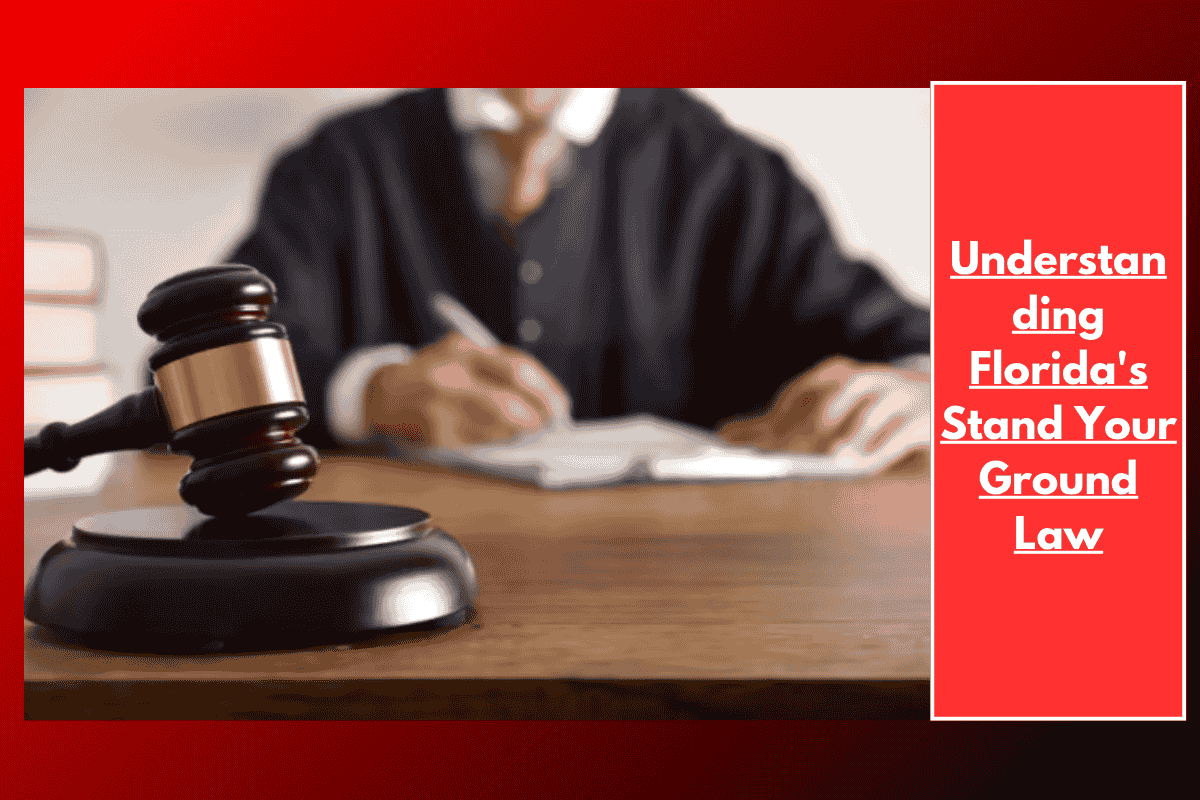Florida’s Stand Your Ground law is one of the most widely discussed and controversial laws in the United States. It allows individuals to use force, including deadly force, to defend themselves without the duty to retreat when faced with a perceived threat. While the law was designed to provide legal protection for those who act in self-defense, its application has sparked debates and legal challenges over the years. Here’s what you need to know about Florida’s Stand Your Ground law, how it works, and the legal implications it carries.
What Is the Stand Your Ground Law?
The Stand Your Ground law in Florida, enacted in 2005, allows a person to use reasonable force, including deadly force, to defend themselves if they believe they are in imminent danger of death or serious harm. The law removes the requirement to retreat before using force in self-defense situations. In other words, if someone is threatened, they do not have a legal obligation to try to escape the situation before resorting to force.
Key Provisions of Florida’s Stand Your Ground Law
No Duty to Retreat:
Florida’s Stand Your Ground law removes the “duty to retreat” in situations where an individual is in a place they have a right to be (such as their home, vehicle, or public place). Unlike some states where the law requires you to attempt to leave the situation before using force, Florida allows you to stand your ground and defend yourself.
Reasonable Fear of Harm:
To use force in self-defense, there must be a reasonable belief that you are in imminent danger. The law doesn’t require you to wait until the threat is actual or has already caused harm; it only requires that you believe you are in danger of serious bodily harm or death.
Protection of Property:
The law also extends to the defense of one’s home, car, and other property. If you feel threatened while in your vehicle or home, you are legally allowed to use force to protect yourself without attempting to retreat, as long as the force used is proportionate to the threat.
Immunity from Prosecution:
If you use force under the Stand Your Ground law, you may be immune from prosecution for the injury or death caused in the encounter. In other words, you might not face charges for using deadly force if it was deemed justified under the law. This immunity extends to civil suits, meaning the person you used force against (or their family) cannot sue you for damages in some situations.
Castle Doctrine:
Florida’s Stand Your Ground law is an extension of the Castle Doctrine, which states that a person’s home is their castle, and they have the right to protect it. The Castle Doctrine allows individuals to use force, including deadly force, to defend their homes if they believe they are in imminent danger.
When Can You Use Stand Your Ground?
While the law seems straightforward, there are specific circumstances where it applies. Here are the main situations where the Stand Your Ground law may be invoked:
In Public:
If you are in public and someone threatens you with harm, you do not need to try to run away before using force to protect yourself. If you are attacked or feel your life is in danger, you can use force to defend yourself without retreating.
In Your Home (Castle Doctrine):
If an intruder enters your home or threatens you within your home, Florida law gives you the right to use force to protect yourself and your property.
In Your Vehicle:
The law also applies if you are in your car and feel threatened. If someone tries to attack or rob you in your vehicle, you can use force to protect yourself.
No Duty to Retreat:
In any of these scenarios, you are not required to retreat or flee from the situation before defending yourself. If you are not the initial aggressor, you can stand your ground and defend yourself, even if retreating is a possible option.
Legal Implications and Criticism
While the Stand Your Ground law is meant to protect individuals who are defending themselves, it has faced significant criticism and legal challenges. Critics argue that the law can lead to unnecessary violence and that it may disproportionately affect minority communities. Some key concerns include:
Misuse of the Law:
In some cases, individuals have used the Stand Your Ground law as a defense after engaging in violent acts that seem unjustified. There have been instances where people involved in altercations have claimed self-defense under the law, even when their actions seemed to escalate the conflict.
Disparities in Application:
Some studies suggest that the Stand Your Ground law may be applied unevenly, with racial disparities in how the law is used. Critics argue that there are instances where the law has been applied more favorably to white defendants compared to defendants of color.
Lack of Accountability:
The immunity provision, which grants immunity from prosecution if the use of force is deemed justified, has been controversial. Some believe it allows individuals to avoid legal consequences even if their actions are questionable.
High-Profile Cases and Stand Your Ground
The Stand Your Ground law gained national attention after high-profile cases, including the Trayvon Martin shooting in 2012. In that case, George Zimmerman, a neighborhood watch volunteer, shot and killed 17-year-old Trayvon Martin, claiming self-defense under the Stand Your Ground law. Zimmerman was initially not charged, but after a public outcry, he was charged with second-degree murder and manslaughter. Zimmerman later claimed his actions were justified under the law and was acquitted of all charges.
Florida’s Stand Your Ground law allows individuals to defend themselves without the duty to retreat when faced with a reasonable fear of harm. While the law is intended to protect individuals in dangerous situations, its application can be complex, and misuse of the law can result in legal challenges. If you find yourself in a situation where you need to use force in self-defense, it is important to understand the law’s nuances and the potential consequences.
As with any legal issue, it’s advisable to consult with a legal professional if you are unsure about how the law applies to your specific situation.
SOURCES
[1] https://www.thedensonfirm.com/criminal-defense/stand-your-ground-law-in-florida-explained/
[2] http://www.leg.state.fl.us/statutes/index.cfm?App_mode=Display_Statute&URL=0700-0799%2F0776%2FSections%2F0776.013.html
[3] https://www.husseinandwebber.com/case-work/criminal-defense-articles/floridas-stand-ground-law/
[4] https://www.flsenate.gov/laws/statutes/2018/776.012
[5] https://valientelaw.com/understanding-floridas-stand-your-ground-defense/














